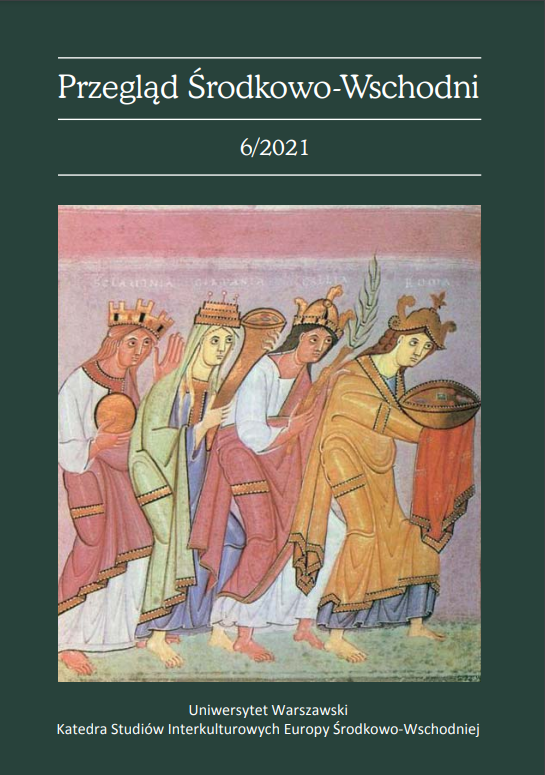Праваслаўныя Вялікага Княства Літоўскага ў дыпламатычнай рыторыцы ў канцы XIV- пачатку XVI ст.ст.
Orthodox believers of the Grand Duchy of Lithuania in diplomatic rhetoric in the end of the 14th-beginning the 16th centuries.
Author(s): Pavel KotaўSubject(s): Cultural history, 13th to 14th Centuries, 15th Century
Published by: Uniwersytet Warszawski - Katedra Studiów Interkulturowych Europy Środkowo-Wschodniej
Keywords: Grand Duchy of Lithuania; Teutonic Order; Orthodox church; Catholic church; diplomacy
Summary/Abstract: Article deals with a variety of ways by which Orthodox believers of the GrandDuchy of Lithuania were present in diplomatic rhetoric in the end of the 14thbeginning 16th centuries. After the conversion of the Lithuanians in 1386,Teutonic Order tried to prove that Grand Duchy is not a good Christian countryby pointing to the Orthodox majority in Lithuania. Knights depicted OrthodoxRuthenians as enemies of the Roman church and heretics, who enjoyed thebenevolence of Lithuanian rulers. Polish-Lithuanian side fi rstly also accusedthe knights of favoring Eastern Christians, but later at the Council of Constancein 1414–1418 presented their Orthodox subjects as ones, who are ready toreunite with the Western church. In 1430-s the same tropes were reproducedby diff erent actors. There were Polish representatives, who drew the picture ofthe Orthodox threat in Lithuania in front of the Council of Basel and Teutonicdiplomacy, which assisted grand duke Svidtrigaila in attempts of reunitingOrthodox Ruthenians with Rome. Wars with Moscow in the end of the 16thcentury. brought another dimension in diplomatic rhetoric: the question offreedom of faith for the Ruthenians in Grand Duchy of Lithuania and the ideaof Christian unity in facing the Ottoman threat. The main way to overcome thecontradiction between the religious situation in Grand Duchy of Lithuania andthe western Christian ideal of unity in orthodoxy in diplomatic rhetoric wasthe perspective of achieving this ideal in the near future. On the other side,the confrontation of this situation with similar demands from the East lead tothe articulation of the ideas of freedom of conscience and the importance ofpeace between the two branches of Christianity.
Journal: Przegląd Środkowo-Wschodni
- Issue Year: 6/2021
- Issue No: 6
- Page Range: 9-30
- Page Count: 22
- Language: Belarusian

